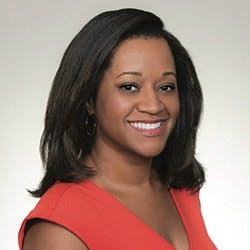Manufacturers: Seek out diverse workers and commit to mentoring programs
For established manufacturing firms, a 20% year-over-year increase in revenue is remarkable. A 20% increase for two consecutive years is almost unheard-of. But those are just two of Karla Trotman’s wins in her role as COO of 32-year-old Electro Soft, a contract manufacturing firm started by her father. Joining the company after a corporate career in purchasing, supply chain management, distribution and global production scheduling, Trotman set out to incorporate modern business management best practices and tools within her organization.
Trotman is a 2019 Influential Women in Manufacturing honoree, and is dedicated to ensuring that Electro Soft is a model of diversity within the manufacturing industry. The company’s workforce is 65% women, and Trotman strives to use her platform to help amplify the voices of women and minority groups within the company and the industry overall.
Plant Services intern Alexandra Ditoro spoke recently with Trotman on the value of crafting and empowering a diverse workforce.
PS: What is diversity to you and why is it valuable?
KT: Diversity to me goes beyond skin color, goes beyond the sex of the person. I believe that the richness of people comes from their life experiences. We are, as human beings, a collection of what we saw, heard, read, experienced in life, and when you put all of those things together you get different perspectives.
In the work setting or even in your own personal life, it’s important to have thoughts and input from people of diverse backgrounds of life in order to get a well-rounded perspective. It’s important because we tend to see things through our own lens, and it’s not always necessarily the right view. When you gather information from others it allows you to get a well-rounded view.
PS: Do you believe that STEM fields are accessible careers? If not, how can we make STEM more accessible?
KT: I’ve always believed that saying, “If you can see it, you can be it.” It’s incumbent upon professionals such as myself that are considered diverse professionals to get out and spread the word, to open our doors, to mentor so that we can show others what exists, the possibilities.
Electro Soft is minority-owned, employs minority engineers, and has minority people working here in different levels of the business. It’s not exactly a career pathway that’s really discussed in schools, so we go out and we talk about being a minority-owned business, with workers having gone to both trade school and college; how we got to be a successful company; and how and why we are a family business. I would say a majority of minorities don’t have that example in their lives.
I was extremely lucky to come from multiple generations of entrepreneurs so, to me, after seeing people make a living transforming their ideas into their own business, I couldn’t think of anything but that. Even though I’ve had a corporate career, the family business was always in the back of my mind. I grew up knowing how to solder and build electronics because my father was an electrical engineer. I was afforded opportunities because I lived in a great area with a strong school district. Not everyone has those opportunities; the field is not accessible to all, and I recognize it. My father recognizes it. We feel that it’s incumbent upon us to go out there and speak about it so that we can incentivize and encourage, explain to others the pathway and be the example.
Another part of it is thinking from the opposite perspective. If you just think about how minority businesses tend to be one of the largest types of organizations who will hire other minorities, that’s because we are looking at things through our lenses. We know how hard it is to be the first and only in work environments. We know how difficult it can be, so we’re more inclined to open our doors and understand the journey of a diverse person. We actively seek to make our workplaces diverse in an effort to enhance it, to reflect the world.
The same thing happens in major organizations. They tend to hire from colleges or universities that they’re familiar with, or people that they’re comfortable with, that they can see working with them. I think if you’re really going to make an effort to open your doors to diverse people, you have to go to where diverse people are. If you want to develop more minority students, you go to those areas where they have a high concentration of minority students and really make an impact. It involves really putting forth the effort and being in the places where there is a target-rich environment.
PS: How do you advocate for diversity and accessibility?
KT: I’m definitely not a shrinking violet when it comes to this topic. I always feel a positive pressure to speak up, and being that I am in a family business, I’m not beholden to a corporation to fit into a certain type of a corporate persona. I can pretty much say how I honestly feel. One person said to me once, “It’s because you’re free that you’re able to express yourself,” and I love that.
I am on boards and am in industry partnerships, where I’m able to speak up about diversity for example, that we should look at having events for minorities, where we should definitely think about pushing our message out into various channels that they may not have thought of. For me, it’s important to not only just speak up, but show people how relevant it can be. So I speak about it, I do articles like this when it comes to diversity – I don’t keep quiet about it. I bring race and that I’m a woman up to the forefront of the conversation, so that there’s never any question that I recognize where I stand.
And then, I’m proud of the position that I’m in, I’m very proud of it. There’s nothing to hide. The reason we get uncomfortable about the topics of diversity and accessibility is because we’re often afraid to talk about it. When I go into industrial manufacturing settings, I’m definitely the last person people are expecting to walk through the door – an African-American female. But, in that, I think there’s also an appreciation for the fact that I am different. I’m definitely memorable because of it, but I’m also qualified. So, I think I serve as an example as well.
PS: Was there anyone in your life who acted as a mentor for you and how? Do you believe mentorship is valuable?
KT: I have always had mentors, from my father to other professionals. I have them today as a woman over 40. I think it’s extremely valuable. Like I said before about being able to see things from a different lens, I think mentors help you along your path and open your eyes to options that you may not see. I use my mentors to check myself when I am feeling unsure, to make sure that I’m seeing things clearly. My mentors have allowed me to understand things from beyond a business perspective, like organizations that I should attach myself to that would be beneficial as a person navigating a business. That insight is invaluable.
- Read "Why apprenticeships, outreach, diversity speak to the next generation of manufacturing leaders"
Good mentors share information because they can’t help themselves. They’re seasoned business professionals who have lived your experience. Mine have helped me through multiple experiences such as banking, financing, and relationship-building. You can only live the 24 hours that you have in your day and you can’t rely just upon yourself to figure everything out. It is extremely beneficial to have someone who can help you navigate the rough patches as opposed to you gutting it out on your own. You’re always going to need somebody and it is nice to have support. Mentorship has definitely been a huge part of where I am today.
Let me add, one should make the effort to connect with people that are completely different, not just those in the industry that you want to be in, to gain a different perspective. Diverse perspectives and experiences enrich conversations and thought processes. Recognize that everyone is just very different, and there’s always something that you can learn along the way.


